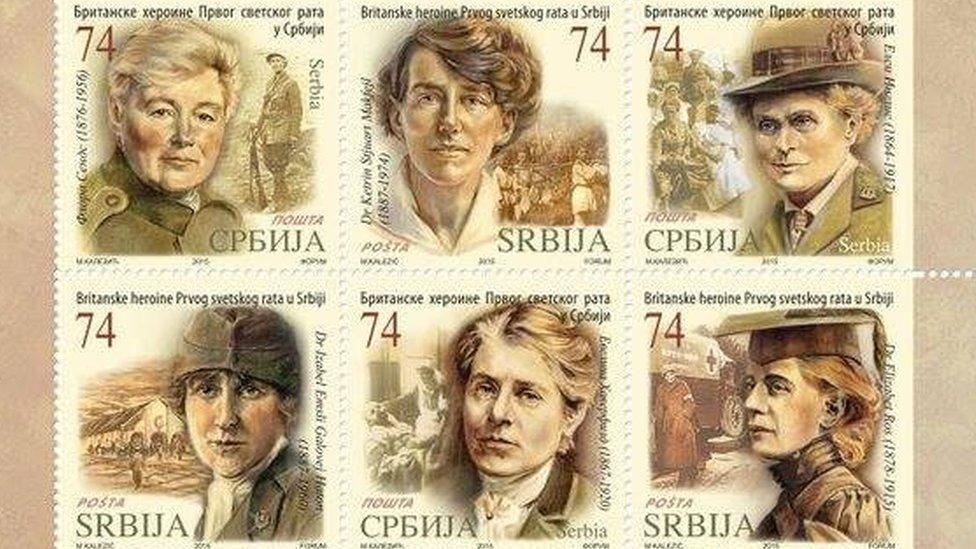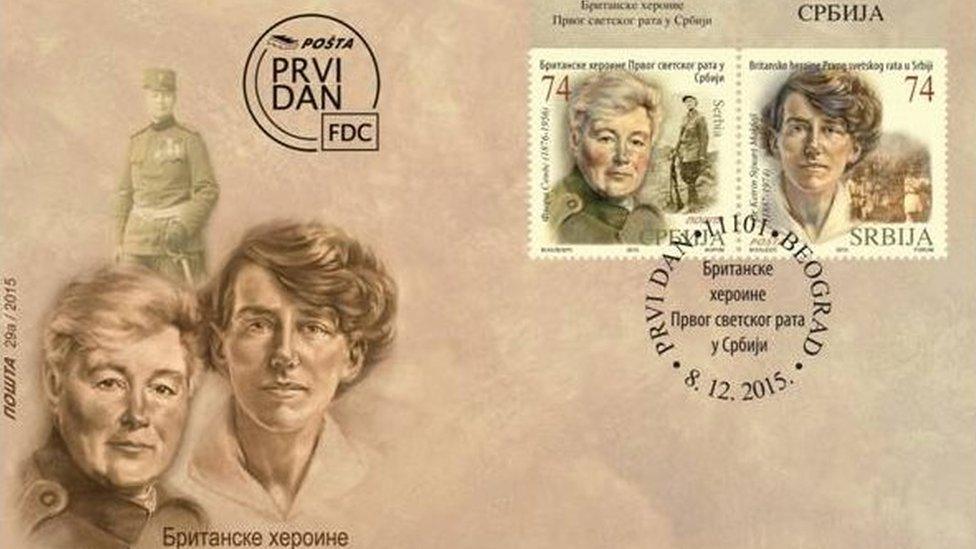Serbian stamps honour Scots WW1 heroines
- Published

The stamps feature Cpt Flora Sandes, Dr Katherine Stewart MacPhail, Dr Elsie Inglis, Dr Isabel Gallowey Hutton, Evelina Haverfield and Dr Elizabeth Ross
Scottish women who volunteered in Serbia during World War One are being commemorated in a series of stamps.
The British Embassy has teamed up with Serbia Post to celebrate the efforts of the Scottish heroines.
Five women who worked as doctors, nurses and drivers feature on the new stamps.
A sixth English woman, Captain Flora Sandes, who was the only British female to bear arms during WW1, is also being remembered.
The five Scots are:
Evelina Haverfield - British suffragette and humanitarian worker. She was the chief administrator of Scottish Women Hospitals in Serbia and set up one of the first local orphanages.
Dr Elsie Inglis - campaigner for women's suffrage and the founder of the Scottish Women Hospitals in Serbia. Dr Inglis was one of the first female graduates at the University of Edinburgh.
Dr Elizabeth Ross - one of the first women to obtain a medical degree at the University of Glasgow. She travelled to Serbia as a volunteer and tragically passed away during the typhoid epidemic in 1915.
Dr Katherine MacPhail OBE - involved in humanitarian work in Serbia throughout WW1. She is remembered for opening the first paediatric ward in Belgrade in 1921.
Dr Isabel Emslie Galloway Hutton - joined the Scottish Women Hospitals as a volunteer in 1915 after she was turned away by the War Office in London. She served in France, Greece and Serbia until 1920.

Cpt Sandes went, along with other British nurses, to Serbia in 1914. However, she swapped bandages for guns when she enlisted in the Serbian Army.
She remained in Belgrade after WW1 and volunteered to fight the Nazis during the attack on Yugoslavia in April 1941. She was decorated with the highest Serbian military medal for her contribution in combat.
The stamps are part of a wider campaign by the British Embassy in Belgrade aimed at highlighting more than 600 British women who contributed to the war effort in Serbia.
As well as remembering their service to the war, the embassy is keen to focus on their role in raising awareness about universal suffrage, solidarity and gender equality and the part they played building relationships with leaders and communities in Serbia.